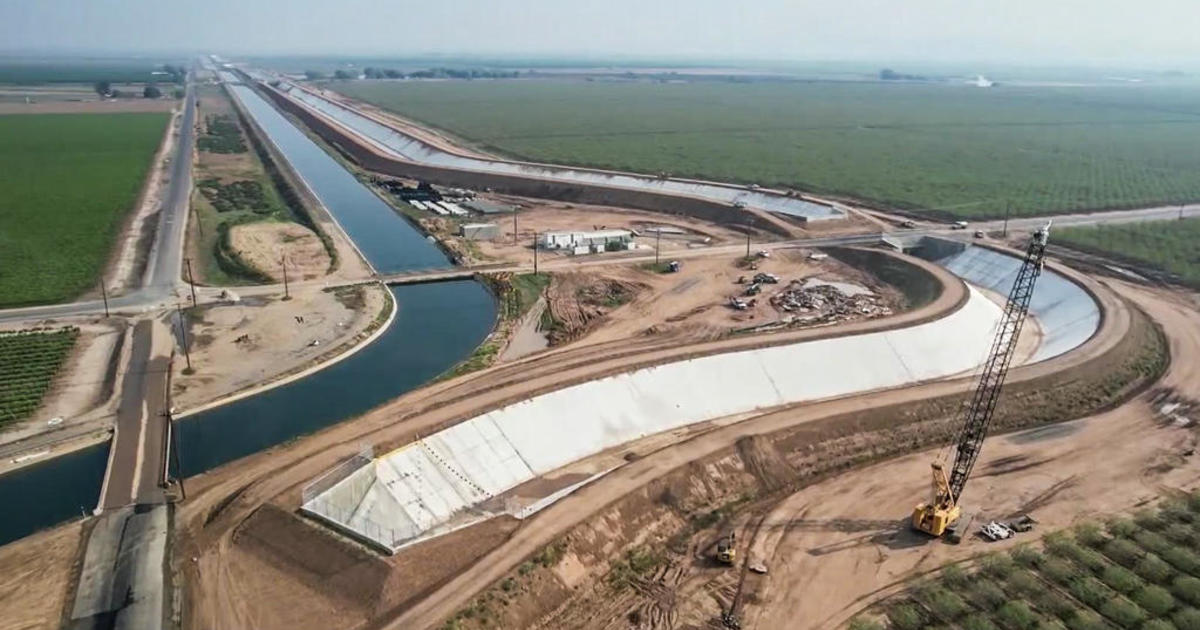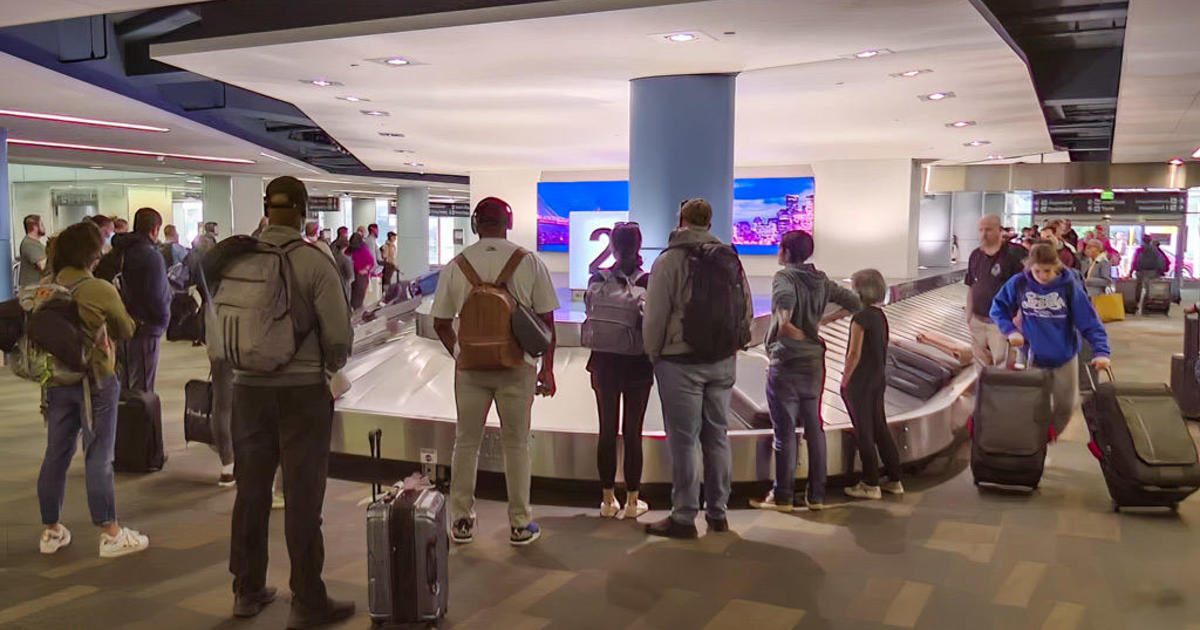California's Central Valley Sinking Faster Than Ever Before As Farmers Drill For Water During Drought
FRESNO (CBS SF) -- California's Central Valley is sinking at a rate never before seen during the state's historic drought, and farmers are shouldering some of the blame for the damage that sinking is causing.
Steve Arthur of Arthur & Orum Well Drilling is drilling wells as fast as his rigs will let him.
"It's unbelievable. We can't keep up with the demand," Arthur told KPIX 5.
ALSO READ:
6 Crazy, Creative Ideas For Solving California Drought Crisis
The waiting list for wells during the state's drought keeps growing.
"Customers will actually pay people from out of state double or triple the price of a regular well just to get the well," Arthur said.
In a word, the farmers are desperate.
"Believe me, the farmers are not drilling wells just because they have nothing else to do with their money," Arthur said.
Farmers are paying $300-per foot to reach groundwater –the lifeblood of their business, and wells are going deeper than ever before.
ALSO READ:
Drought Hypocrisy: San Francisco Using Drinking Water To Heat City Hall, Other Buildings
Some wells go 3,000-feet down, because the good water is being sucked out faster than nature can replenish it.
From a tiny shack near Firebaugh in Fresno County, the USGS tracks how fast the groundwater is dropping. They are also watching the Central Valley sink, right along with the groundwater.
Buckling water canals are just one sign of the damage.
"Roads, railways, canals, pipelines. Any kind of infrastructure like that isn't flexible will break, and that is why people essentially care about subsidence for the most part is because it is expensive," Michelle Sneed of the USGS said.
USGS photos show how much the land has dropped over the decades, but the sinking is happening faster than ever before, while nut farmers in particular are being blamed.
"Farmers don't want this problem either. It's expensive for them. They have to drill deeper wells. They have to bring it up from deeper depths, which is more expensive for them," Sneed said.
But, they aren't backing off planting new almond and pistachio trees.
"That is their life. If they can't raise their crops, they are out of business," Arthur said.



